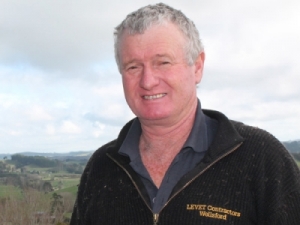Visa changes bring fresh woes
Rural Contractors NZ says members are frustrated at having to work through more layers to get visas approved for skilled seasonal machinery operators ahead of the imminent season start. Andrew Olsen comments.
 Agricultural contractors around the country must play their part in helping to prevent the spread of the invasive weed velvetleaf, says Rural Contractors NZ president Steve Levet.
Agricultural contractors around the country must play their part in helping to prevent the spread of the invasive weed velvetleaf, says Rural Contractors NZ president Steve Levet.
Agricultural contractors around the country must play their part in helping to prevent the spread of the invasive weed velvetleaf.
This is the message from Rural Contractors NZ (RCNZ) president Steve Levet.
Levet is reminding contractors about the importance of biosecurity and machinery hygiene practices on, and between farms, in controlling the spread velvetleaf and says rural contractors have an important role to play in this.
"Contractors need to be conscious of the potential of spreading velvetleaf when moving between properties, or between areas of the same property, and to take responsibility in managing these risks," he says.
Velvetleaf plant seeds can be spread by the movement of vehicles, machinery, feed or stock. It can also spread to new areas of the same property, between neighbouring properties, or even between regions.
Levet says by implementing some simple biosecurity practices rural contractors can help protect the spread of unwanted pest plants such as velvetleaf.
"Farmers and other professional operators in the rural sector like contractors need to pull together to help protect our agricultural sector from the spread of velvetleaf and other pests. I just want to remind rural contractors to stay vigilant and keep up sound biosecurity practices."
Levet says RCNZ has worked with national pest agencies to produce guidelines for machinery hygiene to prevent the spread of pests and weeds, which includes a hygiene logbook:
New Zealand and Chile have signed a new arrangement designed to boost agricultural cooperation and drive sector success.
New DairyNZ research will help farmers mitigate the impacts of heat stress on herds in high-risk regions of the country.
Budou are being picked now in Bridge Pā, the most intense and exciting time of the year for the Greencollar team – and the harvest of the finest eating grapes is weeks earlier than expected.
The Real Estate Institute of New Zealand (REINZ) has released its latest rural property report, providing a detailed view of New Zealand’s rural real estate market for the 12 months ending December 2025.
Rural retailer Farmlands has released it's latest round of half-year results, labeling it as evidence that its five-year strategy is delivering on financial performance and better value for members.
OPINION: "We are back to where we were a year ago," according to a leading banking analyst in the UK, referring to US president Donald Trump's latest imposition of a global 10% tariff on all exports into the US.